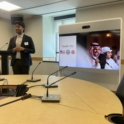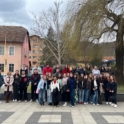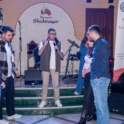Abdulaziz reflects on the highlights from serving as a mentor for CEW.
STORIES
Podcasting Workshop Grant: Project Mic Drop
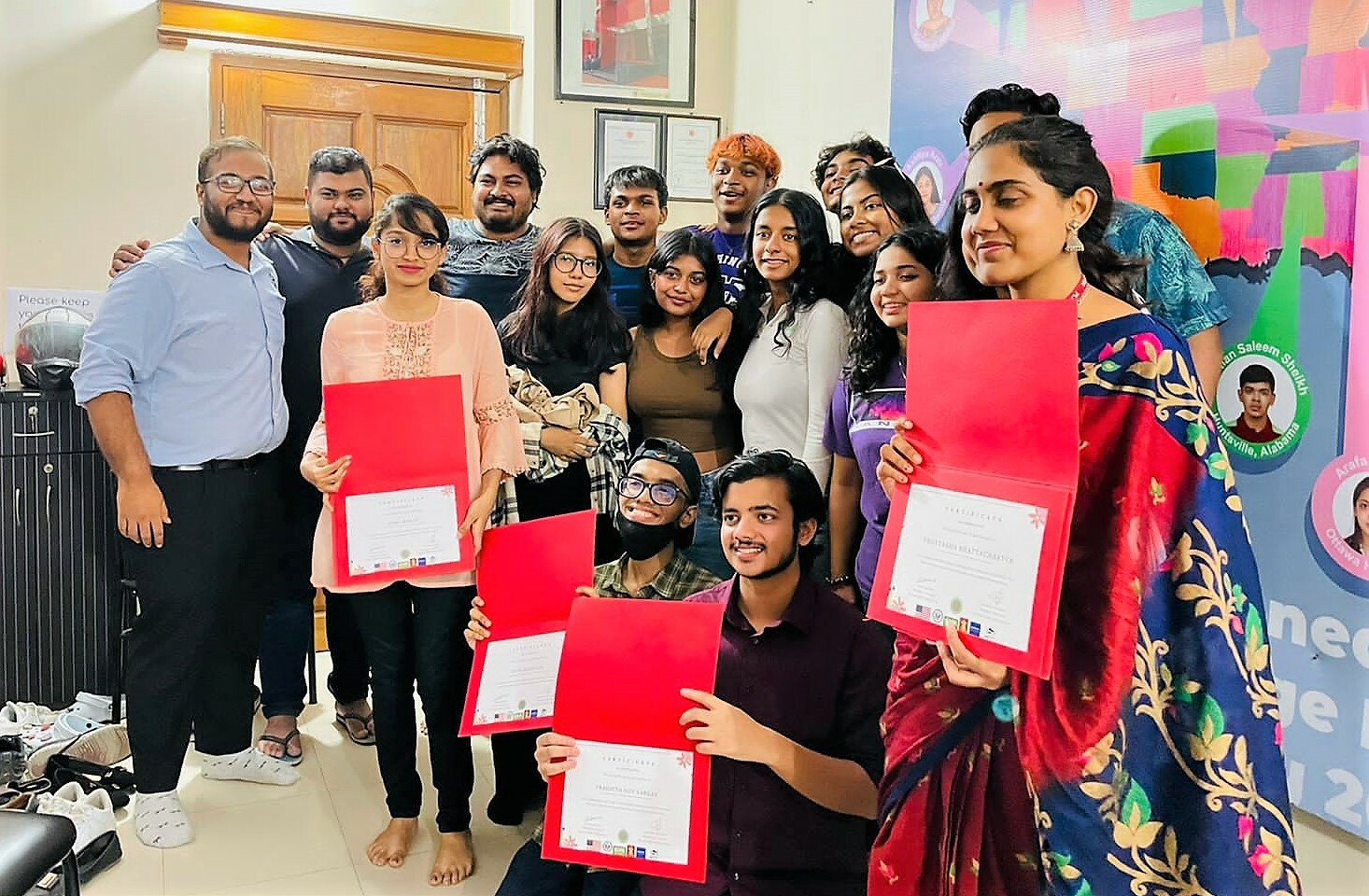
By Samiur Rahman (YES 2013-2014, Bangladesh, placed by CIEE in Anadarko, OK) and Heba AlSaidi (YES 2013-2014, Gaza, placed by CIEE in Lake Stevens, WA)
Samiur: My YES experience in the U.S. was a rollercoaster ride. From culture shock ranging from high school students not being required to wear school uniforms to learning about the vibrant culture of Native American tribes in the heart of Oklahoma, my experiences shaped the way I view cultural differences and made me realize how big the world is. It pushed me to create a life where I always pursue new experiences anywhere I visit in this world. (And thanks to my YES year, I met the love of my life – American football!)
Heba: Before I landed in Washington state in 2013, I was just a person who grew up in an area of the world that has seen a lot of conflict. I did not talk about my struggles, nor did I pursue things that maybe I would have liked. However, seeing American high school students thriving, being adventurous, and seeking out their interests showed me that, if I wanted more out of life, I needed to design the identity and life I wanted. When I left the U.S., being a person who grew up knowing conflict stopped being the only story I could tell.
Samiur: Heba and I never knew how big the world of podcasting was before we got selected for the YES Voices Podcasting workshop. We entered a new universe of storytelling and creating vibrant podcasts with our alumni partners with the help of our trainers from StoryCenter. After the workshop, we realized how uncommon podcasting and audio storytelling were in our countries.
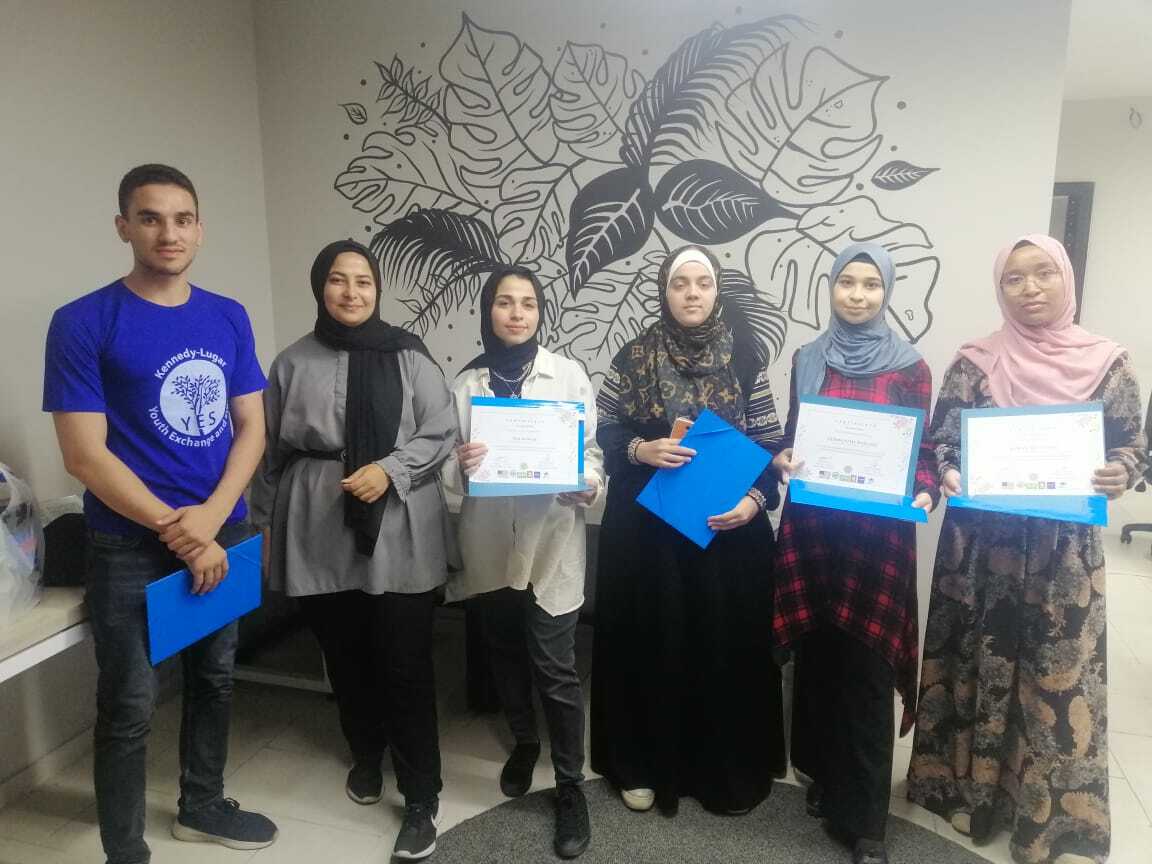
Heba: There is deep stigma around the topic of mental health in both of our countries. People do not dare say out loud that they are struggling and need help. “Help” isn’t widely available – the answer to such struggles is prayer. But people need an outlet to express pent up emotion. Audio storytelling is an answer to that. It is a therapeutic form of art. In addition, we identified another deeply rooted issue common to both of our communities: peacebuilding and interfaith harmony.
Samiur: After identifying that podcasting and recorded storytelling was more or less nonexistent in our communities, we decided to apply for a follow-on project grant after the Podcasting Workshop. We created our own podcasting workshop called Mic Drop for nine youth, ages 16 to 25. Our goal for this project was to create a safe space for participants to share stories about mental health issues and interfaith conflicts in their communities.
Heba: The process of connecting the two themes of mental health and interfaith harmony was a very interesting one, but we found it led to a strong cross-cultural exchange and a deeper understanding of one another’s countries developed between participants.
We selected five participants from Gaza and four participants from Bangladesh and put them into four groups. The program featured three virtual training sessions in August and an in-person presentation with each country group in Gaza and Bangladesh in September, where they presented their stories to an audience of YES alumni.
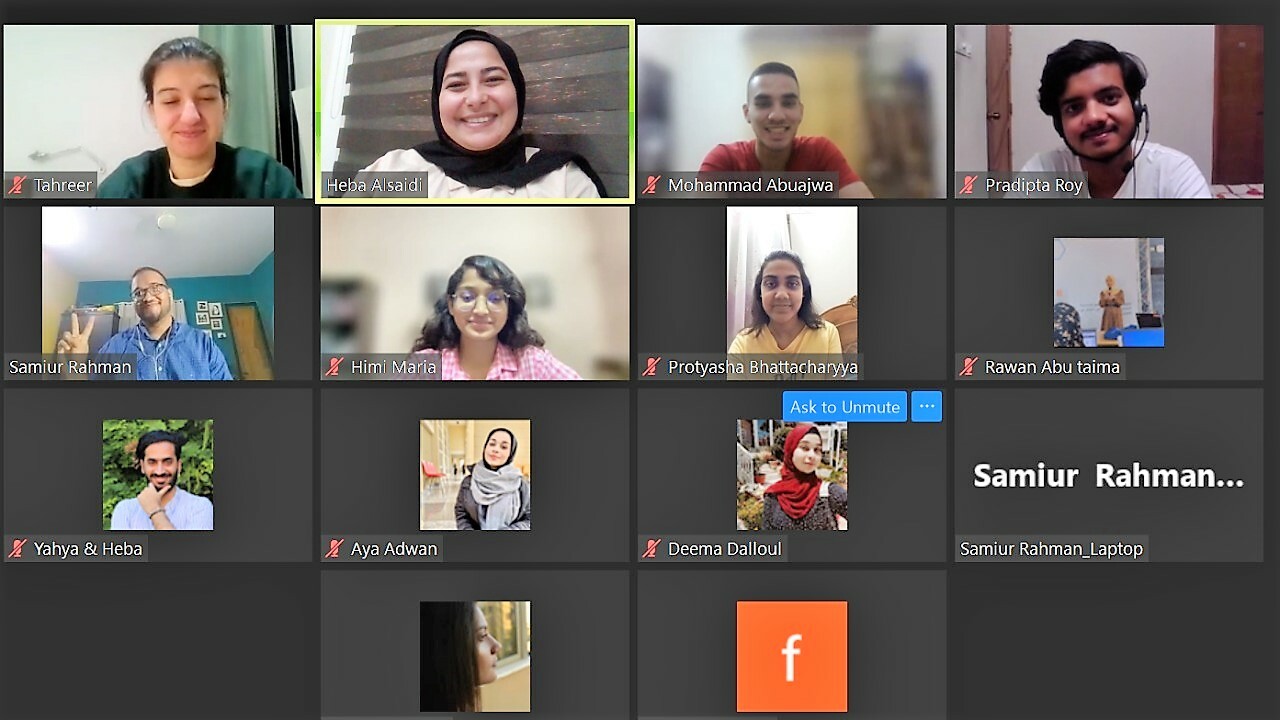
Samiur: After five weeks of training, mentoring, and story development sessions, participants created four audio stories about mental health and interfaith peacebuilding. They researched extensively, and they included resources for their listeners to address issues and find healthy solutions to healing trauma.
Heba: Our participants were proud of their hard work and dedication, and they were surprised with their results. They never expected to create something so amazing with partners living so far away.
Samiur: After the workshop, a participant from Bangladesh shared how excited she would be to be a mentor if this program was held again in the future. We couldn't agree more! With nine participants equipped and ready to be mentors, our future goal for Project Mic Drop is to make it even bigger and connect more communities around the world. We are hoping to connect with local radio stations in Bangladesh and Gaza, so that our project can be shared nationwide and promote podcast listening and inspire youth to use it as a platform to address social issues.
Heba: Sami and I would like to thank all the participants for being such wonderful leaders and storytellers. We’d also like to thank Yahya Ashour ’14, Tahreer Alzaeem, and Jeffrey Bos of the Al Amana Center for being wonderful mentors to this program, and Tala Shurrab ’14 for being a guest speaker. We thank iEARN Bangladesh and Amideast Gaza for providing immense support during the program, and the U.S. Department of State Bureau of Educational and Cultural Affairs for sponsoring Project Mic Drop.


